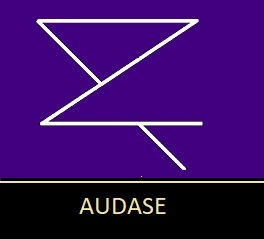Architect
of Putin’s System of Politics Is Reassigned
By ELLEN BARRY NY Times
 MOSCOW — The Kremlin
on Tuesday announced the reassignment of Vladislav Y. Surkov, the “gray
cardinal” who has overseen Russia’s
domestic political scene for more than a decade. The reassignment, made
in the midst of a new protest movement against Vladimir V. Putin, Russia’s
paramount leader, suggested that Mr. Putin is prepared to make changes in the
tightly controlled system that emerged during his first and second presidential
terms. Mr. Surkov, the deputy
head of the president’s administration, is considered the architect of the
system under Mr. Putin and his protégé and successor as president, Dmitri A.
Medvedev, which Mr. Surkov christened “sovereign democracy.” He will now
oversee modernization and innovation as a deputy prime minister, but will take
no role in domestic politics. Russia’s political system has come under
unprecedented pressure this month from protesters who complain that elections
offer them no alternative to Mr. Putin’s rigid model. Former finance minister
Aleksei L. Kudrin, who this month presented himself as a potential leader for
disgruntled liberals, said the move affecting Mr. Surkov suggests “political
reforms are going to continue.”
MOSCOW — The Kremlin
on Tuesday announced the reassignment of Vladislav Y. Surkov, the “gray
cardinal” who has overseen Russia’s
domestic political scene for more than a decade. The reassignment, made
in the midst of a new protest movement against Vladimir V. Putin, Russia’s
paramount leader, suggested that Mr. Putin is prepared to make changes in the
tightly controlled system that emerged during his first and second presidential
terms. Mr. Surkov, the deputy
head of the president’s administration, is considered the architect of the
system under Mr. Putin and his protégé and successor as president, Dmitri A.
Medvedev, which Mr. Surkov christened “sovereign democracy.” He will now
oversee modernization and innovation as a deputy prime minister, but will take
no role in domestic politics. Russia’s political system has come under
unprecedented pressure this month from protesters who complain that elections
offer them no alternative to Mr. Putin’s rigid model. Former finance minister
Aleksei L. Kudrin, who this month presented himself as a potential leader for
disgruntled liberals, said the move affecting Mr. Surkov suggests “political
reforms are going to continue.”
“I consider him one of
the designers of the system,” Mr. Kudrin said in an interview with
Kommersant-FM. “Now, the system is being reconsidered. Other organizers are
needed, with other views on the political system.”
Mr. Surkov, an
advertising prodigy who was brought into government toward the end of the
Yeltsin era, has argued for years that centralizing power in the Kremlin was a
matter of survival after the 1990’s. He acknowledged last year that
“centralization has reached the limits of its capacity,” but attempts to
cultivate new parties were often discontinued if they showed signs of slipping
out of Kremlin control. Asked by a journalist
on Tuesday why he was leaving, Mr. Surkov responded: “Stabilization devours its
young.” He went on to say that he had requested a reassignment. Asked whether
he would take a role in settling down the protests, Mr. Surkov said no. “I am too odious for
this brave new world,” he said, in a short interview with the Interfax news
service. He then summed up his achievements at the reporter’s request. “I was among the
people who helped President Yeltsin realize a peaceful transfer of power,” he
said. “I was among those who helped President Putin stabilize the political
system. I was among those who helped President Medvedev liberalize it.”
“I hope I did not
undermine my employers and my colleagues,” he said. “Democracy was preserved,
renovated and by the acts of Dec. 22,” when Mr. Medvedev proposed a swathe of
substantive political changes, “ it was translated to a working state. I hope
it will successfully make it through the trials ahead. It was good work. There
were, of course, enough mistakes, but let’s talk about that another time.” In September, the
billionaire Mikhail D. Prokhorov called a press conference where he called for
Mr. Surkov’s ouster and described him as “a puppet master who long ago
privatized the political system, who has long misinformed the Russian
leadership about what is going on in the political system, puts pressure on the
media, and tries to manipulate citizens’ opinions.” Mr. Putin on Tuesday
offered a softer assessment of the protest movement which began after Dec. 4
parliamentary elections tainted by ballot-stuffing and other violations. He
seemed to have thought better of belittling the demonstrators, as he did
earlier when he said their white ribbons resembled limp condoms, though he said
they lacked leaders, organization or a clear agenda. “There always are,
always were and always will be forces which are not geared toward development,
but instead Brownian motion,” he said, using a term from physics that describes
the random movement of microscopic particles. “Such people exist, and they
always will exist. Let them fly their flag, they have the right to exist, and
in fact I consider that we should treat them with respect.” He also suggested
initiating a dialogue with dissatisfied voters on the Internet — an unusual
step coming from Mr. Putin, who last year described the Internet as 50 percent
“pornographic material.” Earlier this month, Mr. Putin said he does not use the
Internet because he is too busy.

